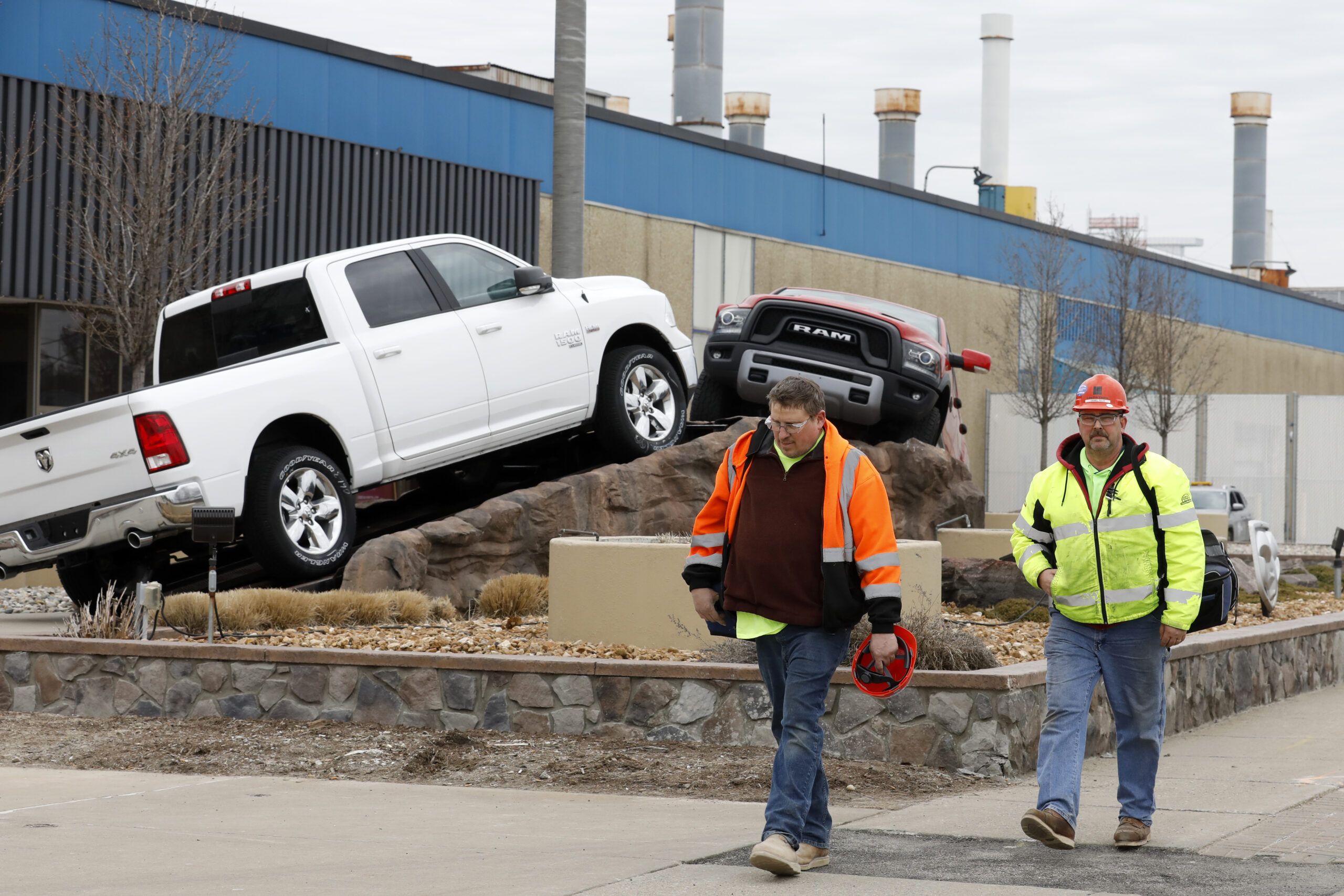US auto plants get back to work after COVID-19 halts
Detroit’s “Big Three” began to resume manufacturing after shutting down in March due to the coronavirus (JEFF KOWALSKY)
New York (AFP) – Two months after effectively freezing American auto manufacturing, Detroit’s “Big Three” on Monday began a gradual ramp-up of plants with new configurations and procedures to prevent coronavirus outbreaks.
Some hourly workers have expressed concerns about the risks of assembly line activity, where staff traditionally have worked side-by-side. But automakers say they will be able to work while practicing social distancing and taking other measures to protect workers.
“We will monitor the situation, adapt accordingly and make any changes to policy in accordance with the CDC/WHO-recommended employee safety practices,” General Motors said in a safety flier given to workers.
Spokesman for the United Auto Workers Brian Rothenberg said defenders of labor would monitor how things go.
“It’s still early but I haven’t heard of major incidents, and staffing appears to be at or above estimates as people go through protocols,” Rothenberg said.
As they entered GM plants for Chevrolet, GMC and other brands, GM took the temperature of employees and provided facemasks and other personal protective equipment, company spokesman Jim Cain said.
Automakers have disinfected work stations, revamped spaces, staggered shift times and installed soap and cleaning equipment throughout the factories.
GM Chief Executive Mary Barra said earlier this month that the company would resume production “in a very cadenced and thoughtful way” with just one shift before adding more.
Ford set return-to-work dates for several plants for the week of May 18, while listing a few factories that would not resume until the week of May 25.
Ford Chief Executive Jim Hackett said that the company’s confidence in the restart stemmed from the success of operations in Europe and Thailand, where workers have been brought back without sparking COVID-19 outbreaks.
“We have not found an infection in any of those factories,” Hackett told NPR.
Hackett said the coronavirus crisis had forced a rethink of plant operations.
“Prior to COVID, we would put more than one person in a vehicle as it was moving down the line as they were adding items,” Hackett said. “We’ve rechoreographed that so it’s not going to happen.”
Disclaimer: Validity of the above story is for 7 Days from original date of publishing. Source: AFP.


